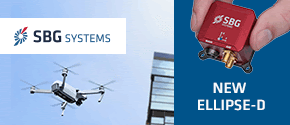| GNSS News | |
GNSS
India, Russia to boost defence ties
India and Russia have agreed to enhance cooperation in space technologies. India is the only country to which Russia has agreed to give access to Glonass military-grade signals, which will enable the Indian military to greatly improve the accuracy of its land-, sea-, air and space-launched weapon systems. www.thehindu.com
Russia Retires Faulty Glonass-M Satellite
A satellite in the fleet of Glonass has been decommissioned because of a terminal malfunction, space officials said. The Federal Space Agency said it stopped receiving signals from Glonass 728 on July 1 and has kept the satellite in maintenance mode ever since.
With the Glonass 728 now retired from service, Russia still maintains a group of 28 Glonass satellites in orbit. http://en.ria.ru/russia/
European Parliament ratifies Ukraine-EU agreement on GNSS
The European Parliament has ratified an agreement on cooperation in a civil global navigation satellite system (GNSS) between Ukraine and the European Union.
The agreement envisages the creation of ground-based infrastructure – three ranging and integrity monitoring stations (RIMS) in Ukraine under the European Geostationary Navigation Overlay Service (EGNOS) project, which is the ground component of the Galileo European Global Navigation Satellite Systems.
It is expected that the coverage of Ukraine with the EGNOS system will increase the accuracy of positioning and air navigation systems, which will help increase the safety of flights and airport operations.
At present, the European Commission is considering the funding of the project. The work on the details of the project will last for about a year. Contracts for the implementation of this project are to be signed for a period of up to three years, and the implementation of the project should be completed by 2019. http://en.interfax.com.ua
Russia, US to protect satellite navigation systems at UN level
Russia and the United States, concerned about competition from navigation systems being developed by the European Union and China, intend to secure frequency spectrum and other positions for their GLONASS and GPS satellite navigation systems at the level of the United Nation’s International Committee on GNSS (ICG).
“The GLONASS and GPS systems were developed in the 1970s and, naturally, they include solutions that have been obsolete for a quarter century. The modernization of the systems has been fairly difficult, and radical changes to the systems are virtually impossible. China with its Compass system and the EU with Galileo, using Russian and American experience, are developing their systems at the most advanced level. Consequently, when these systems are rolled out they will be of better quality than GPS and GLONASS,” a source in the aerospace industry told Interfax. http://voiceofrussia.com
GPS III prototype, ground station communicate in ground test
A prototype of a next-generation GPS satellite built by Lockheed Martin connected for the first time to a ground station supplied by Raytheon during a recently completed series of pre-flight tests.
The test version is jam-resistant GPS III satellite established remote connectivity and communications with Raytheon’s GPS Next Generation Operational Control System during compatibility and integration testing. The prototype satellite serves as a test bed for confirming satellite functionality. The ground tests showed that the prototype could connect and receive commands from the Raytheon-built ground station. http://defensesystems.com











 (No Ratings Yet)
(No Ratings Yet)




Leave your response!